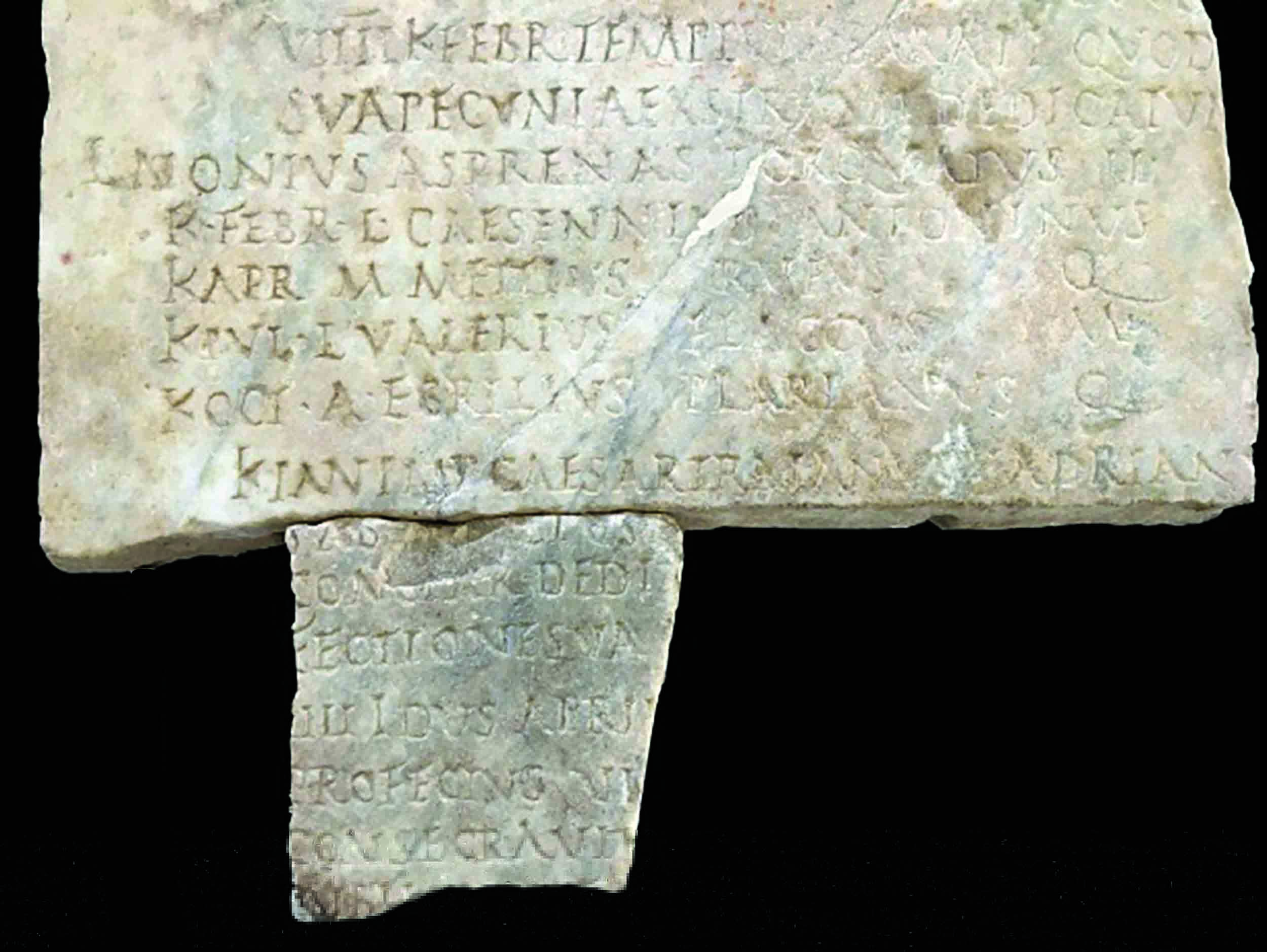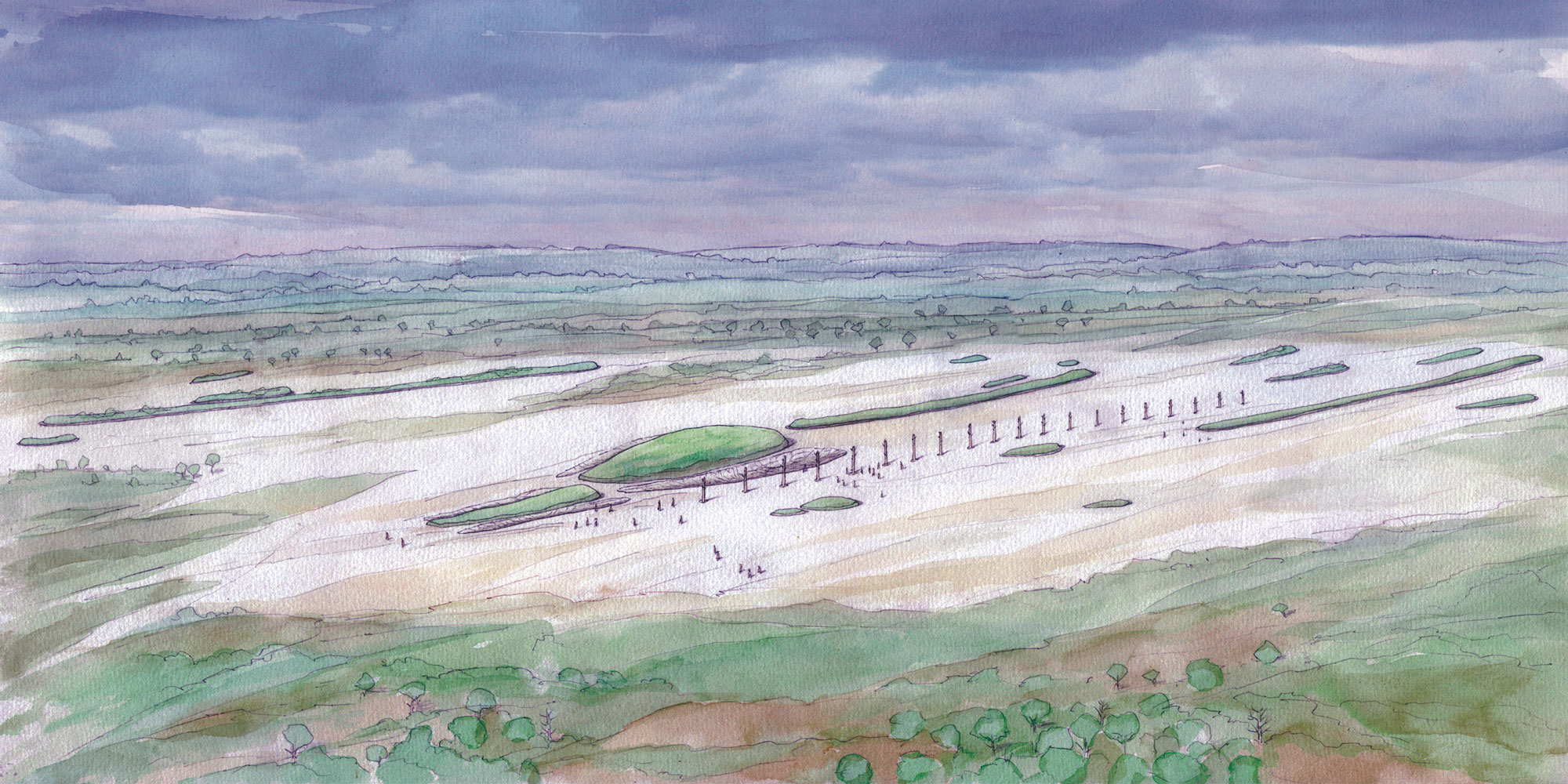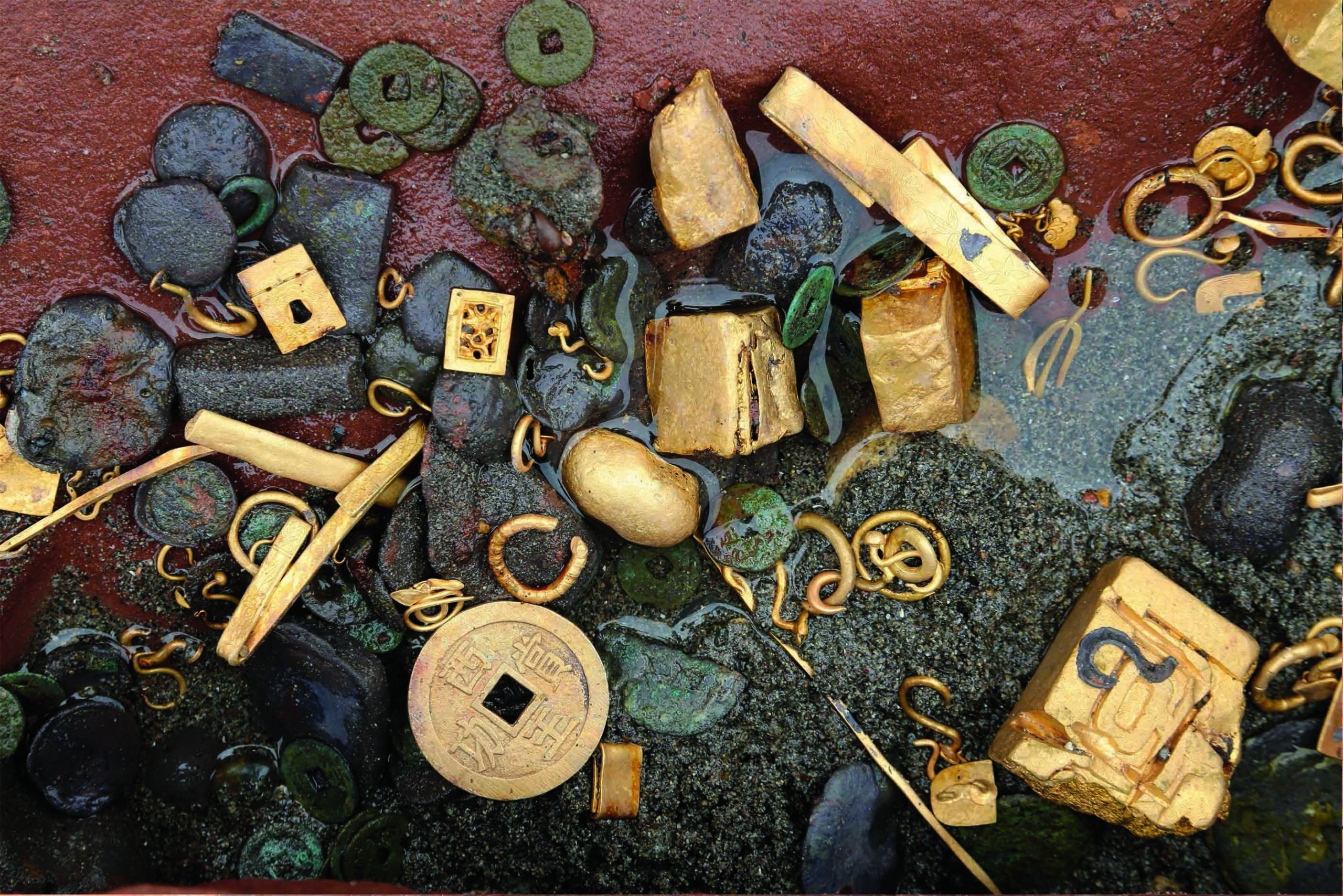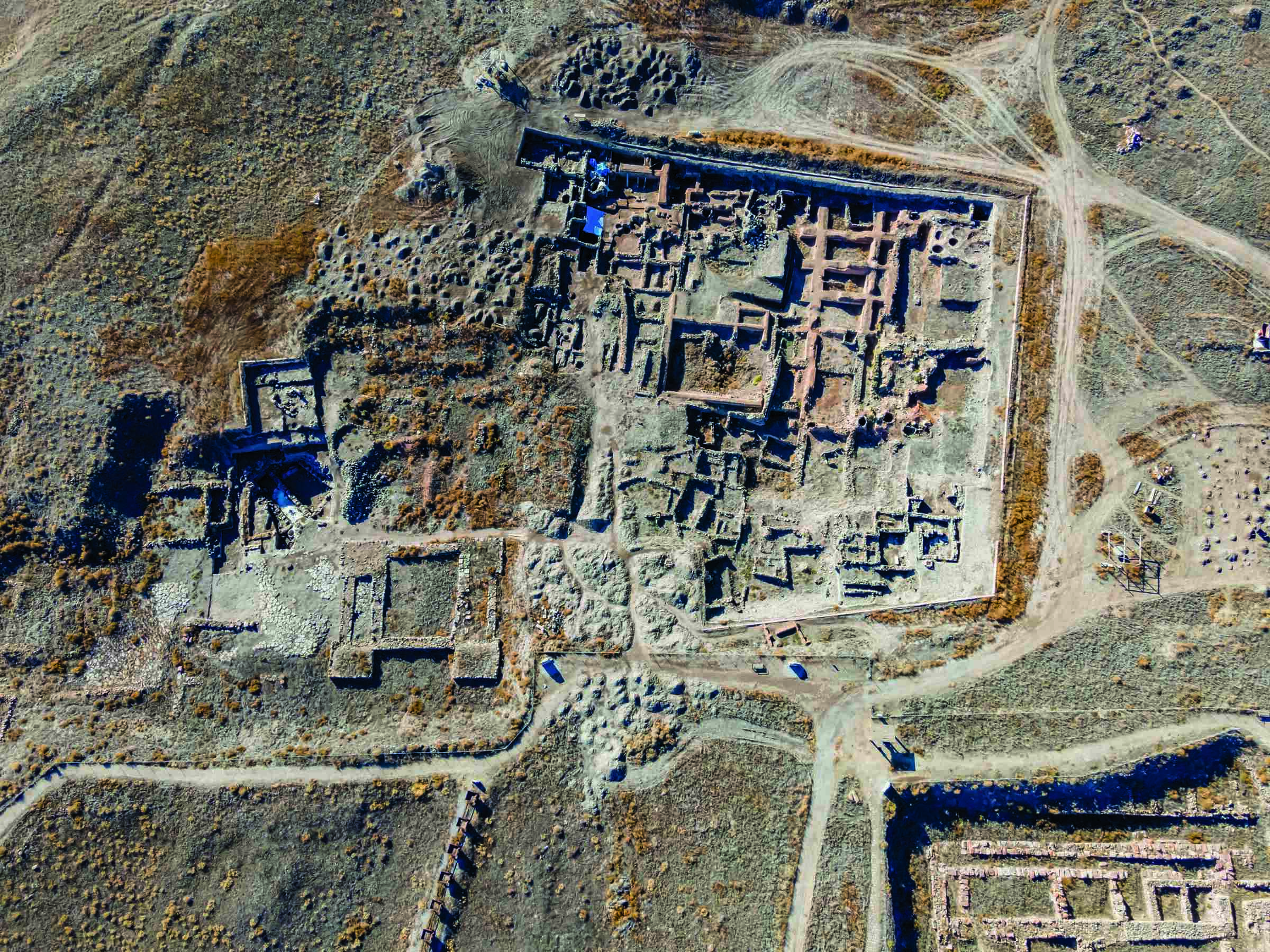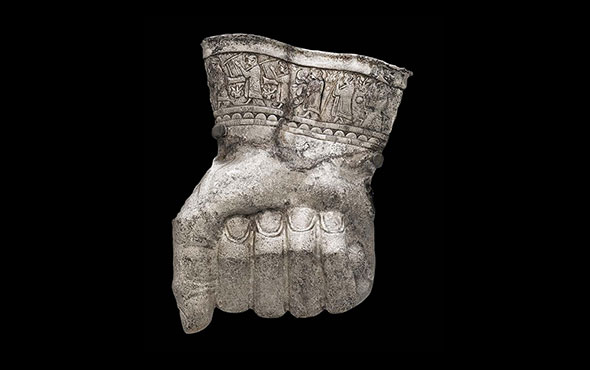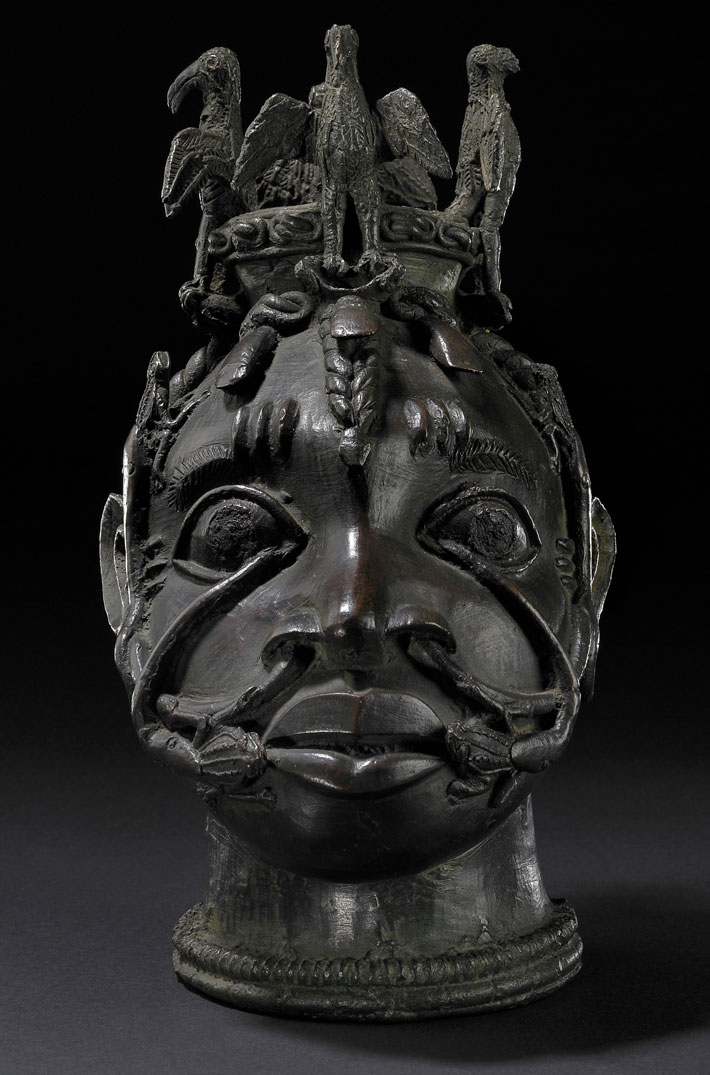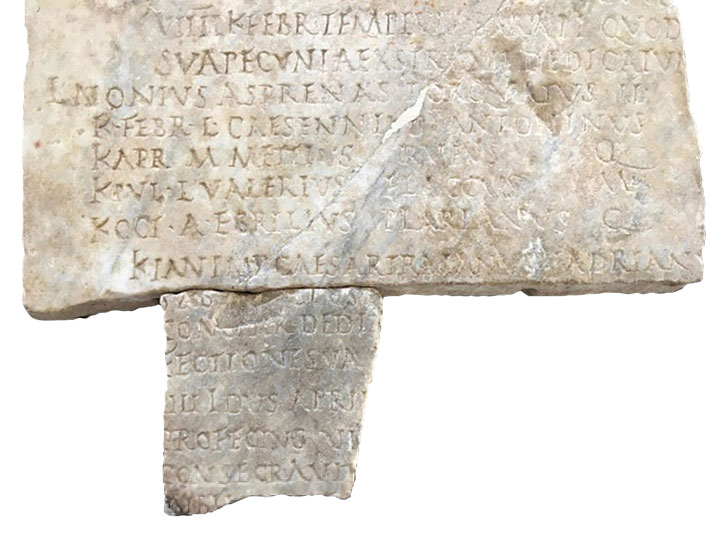
A team of researchers recovered two marble fragments of a Roman document known as the Fasti Ostienses while digging in the ancient harbor town of Ostia outside Rome. The Romans were meticulous record keepers and engraved important events in chronological lists on marble slabs called fasti. The Fasti Ostienses listed the deeds and actions of Roman emperors, political leaders, and magistrates between the years 49 B.C. and A.D. 175. Their execution was the responsibility of the pontifex Volcani, the highest ranking local religious official.
The discovery was made during excavations of the Forum of Porta Marina, a large rectangular complex surrounded by a colonnaded portico on three sides. Two prior excavations in the area during the twentieth century uncovered several pieces of the calendar, but the recently discovered fragments are the first to have been found in more than 50 years. The two small sections cover the years A.D. 126 to 128. One records that on January 1, A.D. 128, the emperor Hadrian (reigned A.D. 117–138) received the title of pater patriae, or father of the country. To celebrate this honor, the emperor bestowed on the people of Rome a congiarium, or donation of money. The other fragment records that Hadrian departed for a tour of Roman Africa in April A.D. 128 before returning in late summer. After his return, likely on August 11, the tablets say that he consecrated a temple in the capital, possibly the Pantheon or the Temple of Venus and Rome.


